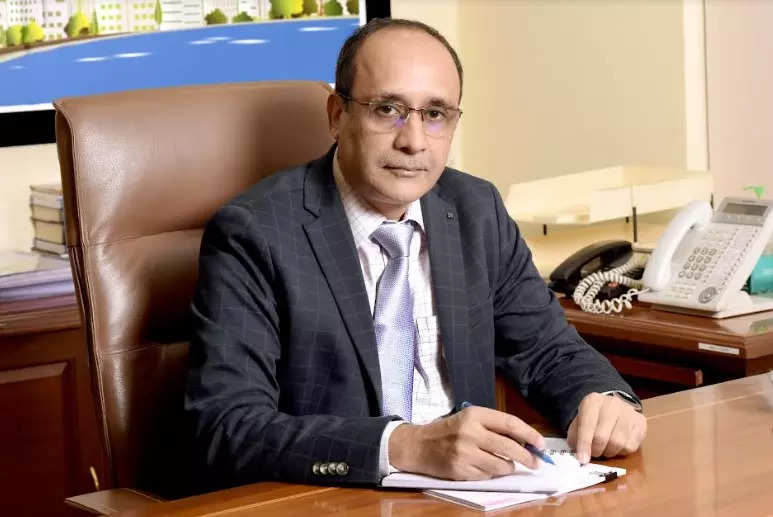
New Delhi: Ashu Shinghal, Managing Director of Mahanagar Gas, believes that the sky’s the limit for Bajaj Auto’s recently launched CNG motorcycle, Freedom 125.
“This is a new business segment that is opening up for us particularly in rural, semi-urban and suburban areas where we have lots of stations,” he told ETAuto. While admitting that there could be some queuing problems in Mumbai, where fuel stations are limited in comparison, Shinghal said the benefits of a CNG bike would far outweigh these initial teething problems.
“Queueing issues will be there for sure but the advantage of low running costs is so huge that I think people will be able to manage this given that this segment is very price-sensitive. It is a big economical advantage for the public and I think demand for the bike will pick up pretty fast,” he added.
Rajiv Bajaj, Managing Director of Bajaj Auto, had this to say, “We take a big picture look at this. Niels Bohr (the Danish physicist) said that the opposite of a truth is another profound truth. So it is very possible that concerns about capex safety queues may dampen enthusiasm. It is equally possible that the attractiveness of opex comfort design may prove compelling. Time will tell but we’re obviously betting on the latter possibility!”
Exclusive dispensers
Mahanagar Gas would ideally like to have exclusive CNG dispensers dedicated to two-wheeler filling along with its own attempts to “make some new innovations”. The company plans to approach the Nagpur-based PESO (Petroleum and Explosives Safety Organisation) to give the go-ahead for setting up smaller stations which will solely cater to “bike filling on a more microlevel” basis. Alternatively, there could be other indigenous solutions like compact fillers and mobile units.
Right now, PESO does not allow this model but “we will talk to them for permitting us to do all these innovations so that we come up with a solution which is more acceptable to the people at large”. Shinghal and his team will discuss these initiatives at the next meeting scheduled with Bajaj Auto in the coming weeks.
“We will come up with our plan and give a presentation. We have already created a small group of experts in-house to tell us how we can manage as crowds increase at our outlets for the Freedom 125,” he added.
According to Shinghal, there is sufficient legroom available because it will take some time for Bajaj Auto to roll out these bikes in larger numbers in the coming months. “So, we will have sufficient time to prepare ourselves. We are also trying to reengineer our new stations so as to suit the movement of bikes in a professional manner,” he explained.
Not a chicken and egg situation
Rajiv Bajaj added his own observation to ETAuto, “Finally one thing I am certain is that demand supply is not a chicken and egg situation. Invariably first comes demand then only supply. Hence, if consumers favour Freedom and drive up CNG demand, pipelines and pumps will come to serve. That should be relatively more likely than EV charging networks sprouting pan-India.”
At present, Mahanagar Gas has nearly 350 fuel stations with its subsidiary, Unison Enviro, accounting for another 50. This fiscal will see another 80 to 90 stations being added which will bring the overall tally closer to 500. The biggest bottleneck is in the main Mumbai city zone where land is not available and this is where Mahanagar Gas depends on oil marketing companies to install its CNG dispensers.
“Other than the main part of Mumbai, all other areas right from Thane, Navi Mumbai and Raigad to Ratnagiri and Chitradurga have adequate land to offer. We will have more CNG stations set up in these regions as part of our plans to reach out to customers,” said Shinghal.
Goodies galore
While Bajaj Auto is a new addition to the Mahanagar Gas umbrella, the latter already meets the needs of other automakers like Maruti Suzuki, Tata Motors, Eicher Motors and Ashok Leyland. These alliances have seen some goodies being offered by Mahanagar Gas in the form of free CNG coupons for some car models and finance to retrofit heavy commercial vehicles.
The gas distribution company has also given some funding to meet the difference between the capital cost of a commercial truck running on diesel and CNG. “We have started bearing almost 50% of the cost for a particular period to make sure that CNG gets proper weightage. We are in consultations with vehicle manufacturers and, similarly, will be in touch with Bajaj Auto to see the things we can supplement and where they can contribute in making it a more successful launch,” said Shinghal.
Ideally, such schemes need to be for a shorter period lest people take them for granted. They must also be targeted at a specific user base initially. Assuming the Freedom 125 starts selling like hot cakes, there will be no need to launch a scheme.
“There are many points we consider while launching such schemes and we will be in very close discussion with Bajaj dealers and see how we can roll out these schemes at the appropriate time to have a greater impact on sales,” continued Shinghal.
All fuels can coexist
From his point of view, it is important to promote CNG as a cleaner option to diesel and petrol at this point in time before electric and hydrogen take over subsequently. Hence, there is good reason to bring down the GST levies onCNG vehicles from the present level of 28% which is way too high compared to just 5% for electric vehicles. By the end of the day, there is no point “penalising a clean fuel”.
Likewise, said Shinghal, there cannot be just one solution to the problems of vehicular emissions. “My view would be rather that all the fuels can coexist. Like we have diesel, we also have petrol, hydrogen, CNG and EVs. All these fuels can coexist,” he explained.
The harsh reality is that there are several applications in which EVs cannot give a solution as in the case of long hauls in heavy trucks where LNG (liquefied natural gas) can play a major part.
“In the mixed segment, CNG can play a better part while in a very low light segment, EVs can play a bigger role. I believe all these segments can be divided amongst different fuels taking into account technological advancement, the scale of commercial viability and infrastructure. Ultimately, it is up to the customer to choose the fuel he wants and i is better not to distort the market in any manner,” said Shinghal.
The good news on the CNG side is that there are around 6,500 fuel stations in the country with 1,500 new ones being commissioned every year. The overall numbers could therefore double quickly in the next few years which would then give customers a good reason to opt for CNG as their preferred fuel.
Other initiatives
Mahanagar Gas has also signed an an MoU with the Brihanmumbai Municipal Corporation to put up a 1,000 tonnes per day compressed biogas plant in Mumbai. This will be the largest of its kind in Asia based on solid municipal waste and is expected to be operational by 2026. With some automakers keen on looking at CBG as an option, the Centre is keen on setting up more plants across India.
“It is something very new thing for us and we will learn from it,” said Shinghal. Even while this project is not commercially attractive and will not yield exorbitant returns, the more important part is that it will solve the problem of waste handling, pollution, availability of organic manure and offer CBG as a choice of fuel for vehicles.
Mahanagar Gas also recently entered into a joint venture with Baidyanath LNG of Nagpur to set up LNG stations across India. The focus right now is on Maharashtra but subsequently “we will take a call to replicate these stations in other parts of the country”.
It has also acquired a 31% stake in 3ev Industries of Bengaluru which makes electric three-wheelers for last mile connectivity. “We are closely watching the space and as and when something comes up to scale it up, we can obviously do it,” said Shinghal.
















